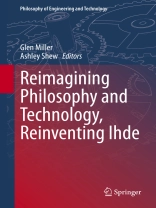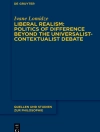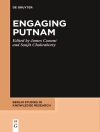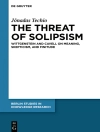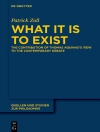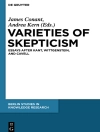This volume includes eleven original essays that explore and expand on the work of Don Ihde, bookended by two chapters by Ihde himself. Ihde, the recipient of the first Society for Philosophy and Technology’s Lifetime Achievement Award in 2017, is best known for his development of postphenomenology, a blend of pragmatism and phenomenology that incorporates insights into the ways technology mediates human perception and action.
The book contains contributions from academics from Europe, North America, and Asia, which demonstrates the global impact of Ihde’s work. Essays in the book
- explore the relationship between Ihde’s work and its origins in phenomenology (especially Husserl and Heidegger) and American pragmatism;
- integrate his philosophical work within the embodied experience of radical architecture and imagine the possibility of a future philosophy of technology after postphenomenology;
- develop central ideas of postphenomenology and expand the resources present in postphenomenology to ethics and politics; and
- extend the influence of Ihde’s ideas to mobile media and engineering, and comprehensively assess the influence of his work in China.
The book includes a reprint of the Introduction of Sense and Significance, one of Ihde’s first books; ’Hawk: Predatory Vision, ‘ a new chapter that blends his biographical experience with feminism, technoscience, and environmental observation; and an appendix that lists all of Ihde’s books as well as secondary sources annotated by Ihde himself.
Starting with an Editors’ Introduction that offers an overview of the central ideas in Ihde’s corpus and concluding with an index that facilitates research across the various chapters, this book is of interest to a diverse academic community that includes philosophers, STS scholars, anthropologists, historians, and sociologists.
Tabela de Conteúdo
Preface.- 1. Editors’ Introduction (Glen Miller and Ashley Shew).- Part 1. Plumbing Phenomenological and Pragmatist Origins. 2. Introduction to Sense & Significance Reprint (Don Ihde).- 3. Ihde’s Revolutions: From Paris to Science, Rock, and Radical Architecture (Trish Glazebrook).- 4. Ihde’s Pragmatism (Paul Thompson).- 5. Postphenomenology, a Technology with a Shelf-life? Ihde’s Move from Husserl toward Dewey (Robert C. Scharff).- 6. For a Cosmotechnical Event: In Honor of Don Ihde and Bernard Stieglar (Yuk Hui).- Part 2. Extending Concepts and Theories. 7. The Multiplicity of Multistabilities: Turning Multistability into a Multistable Concept (Galit Wellner).- 8. Relational Ethics: The Primacy of Experience (Lenore Langsdorf).- 9. Politicizing Postphenomenology (Peter-Paul Verbeek).- Part 3. Inventing New Connections. 10. Postphenomenology, Ethnography, and the Sensory Intimacy of Mobile Media (Ingrid Richardson).- 11. Designing and Constructing the (Life)World: Phenomenology and Engineering (Glen Miller and Carl Mitcham).- 12. Let Things Speak: Don Ihde’s Thought and Philosophy of Technology in China (Zhang Kang).- 13. Hawk: Predatory Vision (Don Ihde).- Appendix: A Chronological Listing of Don Ihde’s Books and Major Books Dedicated to His Work (Don Ihde).- Notes on Contributors.- Index.
Sobre o autor
Glen Miller is an Instructional Assistant Professor in the Department of Philosophy at Texas A&M University. He earned his Ph.D. in Philosophy from the University of North Texas. His research triangulates the history of philosophy, especially ethics and politics, and two emerging areas of concern, the environment and technology. He regularly teaches a large course on engineering ethics and investigates issues in applied, practical, and professional ethics, including bioethics and cyberethics.
Ashley Shew works as a philosopher of technology in the Department for Science, Technology, and Society at Virginia Tech. Her interests include animal studies, disability studies, and emerging technologies. She is the author of Animal Constructions and Technological Knowledge (2017) and co-editor of Spaces for the Future: A Companion to Philosophy of Technology (2017). She currently focuses her research on narrative accounts surrounding disability, enhancement, bodies, and technologies.
